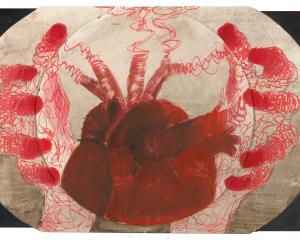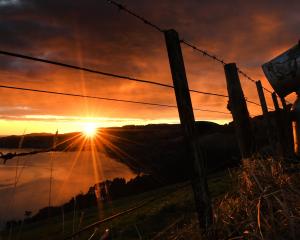To be a soldier in the Battle of Monte Cassino, you had to have courage, devotion, foresight and above all, the ability to fight on.
I am especially proud to say that my school is built from men of such high calibre.
Proudly displayed on the walls of the Hall of Memories are the names of those who fought in World War 1 and World War 2.
Among those names is the extraordinary James Burrows, rector of Waitaki Boys' High School.
Before the Italian campaign, Mr Burrows was an inspiring young teacher who had a love for all sports.
When war was declared in 1939, he enlisted immediately.
He gained command of the 20th Canterbury/Otago Battalion and led them through the battles in Greece and Crete in 1941.
With his battalion maimed and broken, his orders were to rebuild their strength and then join in on the Italian campaign.
Mr Burrows quickly became commander of the New Zealand 5th Brigade in the attack against Monte Cassino; the 520m mountain that guarded the Gustav Line.
This was to be taken in October 1943. It was taken on May 18, 1944.
The objective was to break the Gustav Line.
Churchill had said that this was one of the most important operations in World War 2.
Mr Burrows was among the soldiers who fought fiercely for Cassino Town.
Initially, at Cassino Station he had scrambled up the hill with the rest of his men to watch as the 28th Maori Battalion were brutally slaughtered by the ruthless and relentless foe firing mortar bombs.
Burrows was not deterred. In storming Cassino Station he had climbed muddy vertical cliffs, now his new objective was to weave through the town itself, which had taken an Allied bombing, and to secure it so as to then take Monte Cassino itself.
Imagine the rubble, the strewn earth and concrete that littered the area.
Such was the mess that Allied tanks could not enter the ruin.
No sound was to be made as the Allies advanced.
Mr Burrows crept on, stopping every few yards to throw grenades ahead.
Steadfast leadership was called for and Mr Burrows provided it.
The fighting became intense; spade and shovel were as common weapons as the bayonet.
Slowly but surely, he and his fellow soldiers took parts of Cassino Town and cleared the way for their tanks to enter the town.
Mr Burrows was said to be a man of courage, leadership, skill, determination and cool-headedness.
He was appointed rector when he was still in Italy, as Waitaki Boys' High School decided they must have him. He was in his position at the school the following year.
A lot can be learnt from Mr Burrows, because he himself was always learning and never gave up.
That is the spirit of Waitaki - the spirit of our school, our country: we continue to fight on, whether in education or on his favourite place in the world, the sports field.
• By James McCulloch, Year 12, Waitaki Boys' High School












